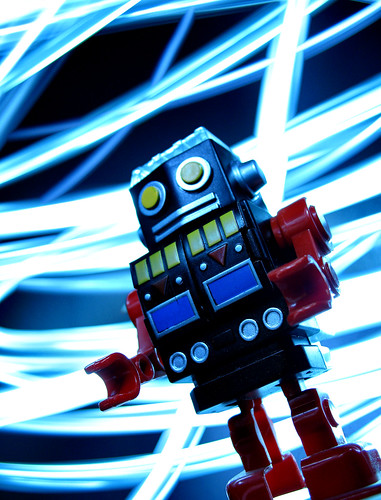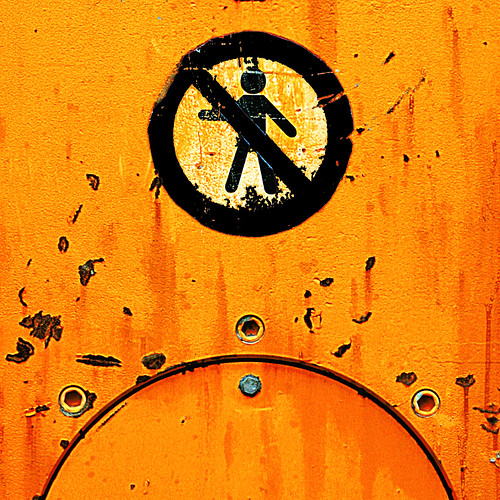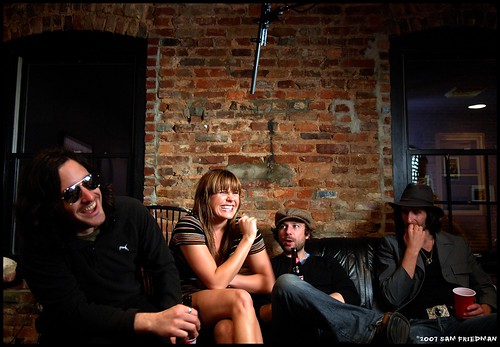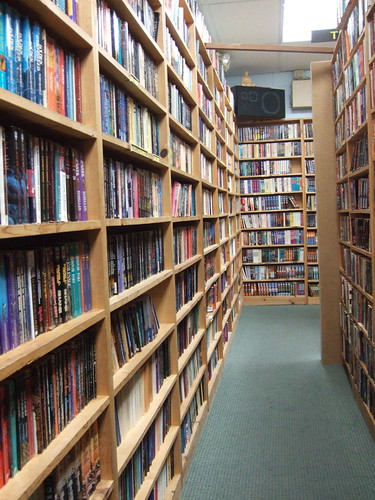The Future of Publishing?
/
SF Signal has an excellent topic this week for their mind-meld, a gathering of experts in the field who commentate on a common subject. This week's topic looks to the future of a field that's central to the speculative fiction genres: Publishing. The responses are well worth looking at and reading over, especially for those who are interested in writing professionally, or for fans who are wondering where their fix will be coming from next.
The short answer consensus seems to be that publishing, books, stories and everything isn't going anywhere, but the field will see major changes in book distribution and creation, not to mention the publishing rights of authors. eBooks and dedicated readers seem to have thrown most everyone through a loop as they scramble to figure out just what's going on, and trying to make their best guesses on where the industry will step next, which is in turn dependent on a number of factors outside of the publishing industry's control.
To be fair, books have had their own share of issues throughout recent memory, although the challenges here are a bit bigger. The 1980s and early 1990s saw a massive amount of consolidation of bookstores as major chains worked their way into existence, causing quite a lot of soul searching and closings of independent bookstores as a result. The bigger stores seem to have met their match as Amazon.com roared past them, because it could do things differently, and better than a physical bookstore. With eBooks, the troubles come as established markets find that their models for selling books is potentially undermined by an entirely new way to sell books, bringing in a number of new challenges and opportunities to the publishing world.
Every single online conversation about books seems to turn to the eBook market, with people coming down on two sides: "I LOVE EBOOKS, I READ SO MANY OF THEM!" and the "I LIKE THE SMELL OF PAPER AND THE WEIGHT OF THE BOOK IN MY HANDS!" crowds, both of which miss a major point: all that the platform does as function, whether physical or a computer, is content delivery. The same book exists in both realms, and as Lou Anders points out: "... it's always been about the content, not the delivery mechanism." Publishers have an extra option that just didn't exist in any major way, and they are slowly waking up to the possibilities that electronic books will allow. The popularity of eBook readers is a good thing, I think.
The move to electronic formats does allow for a split between hard-copy 'traditional' books, and eBooks in ways that really hasn't been touched on yet. When I attended ReaderCon, one presenter, Leah Bobet, noted that there are impressive things that electronic books can do: interactive features, links to relevant content and ways to read books in very different ways than we can now. Cheryl Morgan notes the very same thing this time around: essentially special features that can get tacked on to what you're reading. With that line of thinking, books are poised to change a lot: multiple editions of the bigger books, with stripped down text for those who just want the story, or special features for the top of the line products. Some books already have these sorts of incentives: interviews with authors, reading guides, and previews of upcoming novels.
Despite this, I don't think that hard-copy books will go away any time soon. There is enough market demand for hard-copy books, and the medium has had a long, long head start on the eBook revolution, which is still working its way through its early days. EBooks are certainly popular, and will grow to be even more so as the market shakes out the big obstacles. I suspect that we'll see the end of dedicated eBook readers such as the Nook and the Kindle (sorry, Barnes and Noble and Amazon), in favor of multiple use devices such as the iPad, or dedicated eBook readers such as the Sony Digital Reader as a universal format is adopted by stores and publishers alike. The ability to read a book on multiple devices, I think, will be more important that the actual proprietary hardware that we have now. This is a lesson that online magazines are finding, and I suspect that while the Kindle has a good run right now, it'll become a bit more open and accepting of other formats.
While e-readers might become a bit more open, I can see exclusivity remaining, becoming a major factor in how stories are sold, coupled with how chain stores might try to stay in the game. A couple of years ago, Borders released an exclusive book through their stores. I was a bookseller at the time, and this was a book that had been pushed quite heavily, and through the company's efforts, it did fairly well, although I can't figure out what the title of the book was or who the author was. The experiment doesn't seem to have been as much of a success, because I haven't seen anything like it since then (although I'm not quite in the same loop as I was before), but I think it's an idea that has merit, and that it'll be experimented with again.
There's little doubt that major book sellers are having their own issues at the moment: too much stock, not enough of it selling, and it's likely that we'll see Borders fail in the next couple of years, if not sooner. Amazon and Barnes and Noble, I suspect, are going to be far better off because of their own efforts to integrate web sales and ebook readers earlier than their competitors. These are large organizations that nobody wants to see fail: the loss of a major bookstore is something that authors and publishers don't want, because of the potential to reach a large number of loyal customers, and the companies themselves don't want to die off. The chain stores are here to stay, I suspect, despite the swan songs of their demise, simply because they have the potential to sell a lot of books to a lot of people. They might be facing some major changes, but I would doubt that we'll see the current companies die off, or at least not without some sort of replacement in one form or another.
If there's anything that the Kindle has demonstrated, it's that exclusive things do work: the Kindle's done quite well, and where Borders has attempted their own exclusive things, I would predict that the major bookstores, in their efforts to stay relevant, will move a bit into the publishing field. It makes a bit of sense: they have experience with the market and the books that they know work. The only piece that's missing is that they are only an outlet. Moving to begin selling their own books (Barnes and Noble already sells its own editions of a number of classics) would allow them to drum up a reason for people to come to their stores. Imagine if an author such as John Grisham or a similarly well-exposed author came out with a book that only sold at Barnes and Noble, published exclusively through them: it couldn't be sold through Amazon.com or other competitors, and would get a fair amount of visibility through internal marketing and so forth. I can imagine that there would be a bit of anger from other authors, author groups and other stores, but large groups of dedicated readers would buy them. The trickle-down effect would be slow, with other authors jumping on if it works, and other bookstore chains copying the idea, slowly opening it up to more and more people, splitting the market up a bit, and giving the chains a bit of an edge over juggernauts such as Amazon.com.
There are a lot of assumptions here: the internet might not be the same, and as some people noted, the idea of net neutrality is slowly dying and the internet is changed radically. I don't know that it'll be as bad or as better than what people are imagining now, but major changes in how the internet works will spell major changes in how books are sold: another reason why physical books might remain longer than expected from those already writing their obituaries.
But, as has been stated already: the mediums in which books are sold are merely content delivery systems that bring the stories to the reader. Regardless of how that plays out, there is plenty of demand for books, and as such, I've little doubt that there will need to be in place editorial and distribution elements for the serious efforts. One thing is for sure: we're in for an interesting ride.























